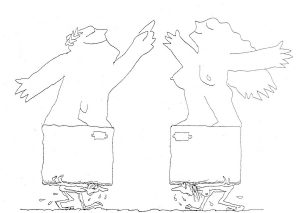Lifelong feelings of shame and deficiency are typically found to accompany the distress states caused by early trauma. Children cannot experience themselves as being a good person in a bad situation. Failure of the holding environment (family) is experienced as failure of the self. Later thoughts like, ‘there is something wrong with me’, or, ‘I am not worthy or bad’, are built upon early sensations in the body of ‘I feel bad’. Simply understanding that your shame reflects the environmental failure you experienced rather than who you really are can help shift lifelong patterns of low self esteem, shame and a sense of worthlessness and help you see yourself in a new, more compassionate way. Paraphrased from Healing Developmental Trauma with Laurence Heller, PHD

Have you experienced extreme highs when something good happens to you and extreme lows or deflation when facing something bad or a disappointment? Do you feel like you are bouncing up and down, dependent on outside forces? If things are going really well and you are making your goals, do you still have a nagging feeling that you are not enough? Do you sense an emptiness that does not respond to how much you fill your life or even how happy you seem to be? Even as your confidence grows, and your accomplishments pile up, do you notice you are afraid that failure could be lurking right around the next corner? Or do you feel that, no matter how successful you are, you are just fooling everyone—playing a charade of a confident, accomplished person; that you’re a fake?
…




